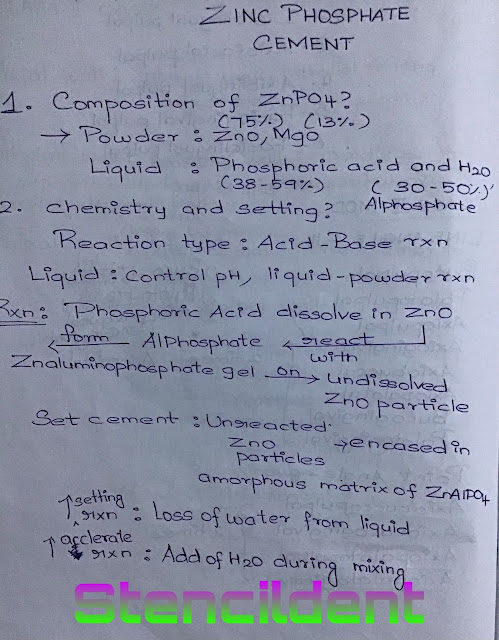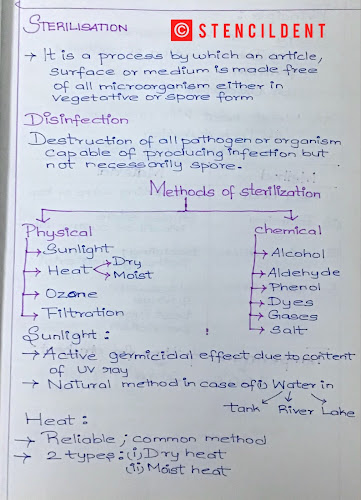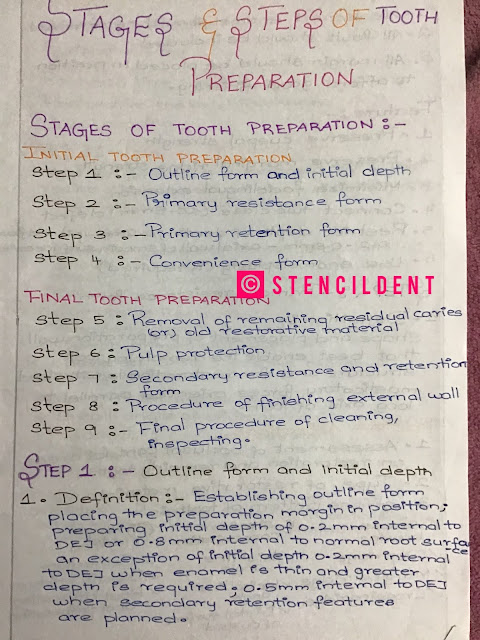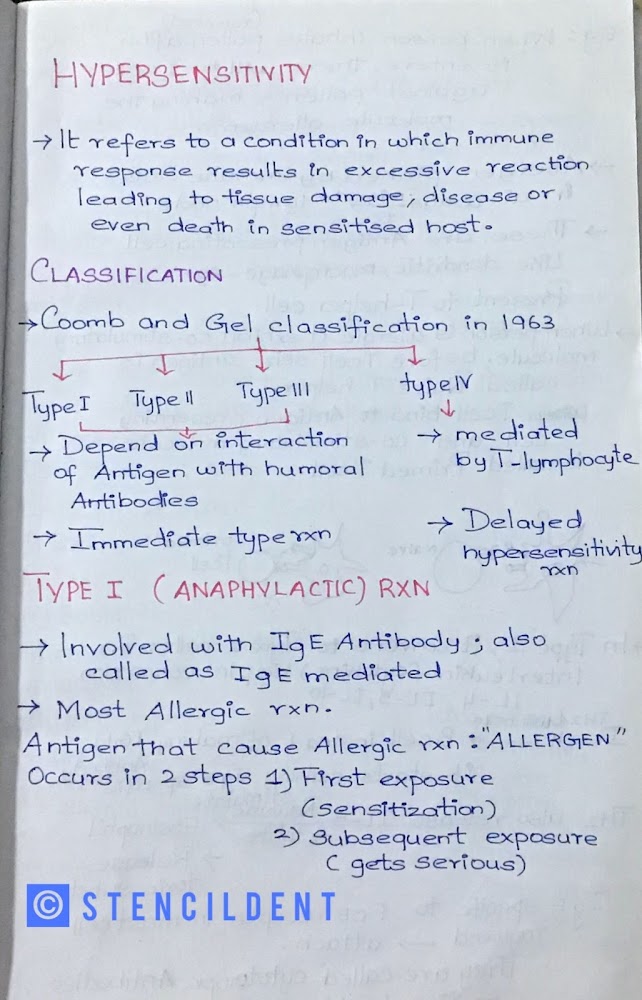ZINC PHOSPHATE CEMENT - CLASSIFICATION,COMPOSITION,SETTING REACTION,MANIPULATION
Zinc Phosphate Cement
- ADA Specification number of Zinc Phosphate is 96.
- Zinc phosphate cement was originally developed more than 100 years ago and was extremely popular during most of the twentieth century.
CLASSIFICATION:
TYPE 1 : Fine grained for luting
Type 2: medium grained for luting and restorative purpose.
COMPOSITION:
- Zinc Phosphate cement contains powder and liquid containers which comes separately.
liquid: phosphoric acid 38-59% in water 30-50% and is buffered with aluminium and zinc salts to control the ph.,zinc- 7%,aluminium-2%
CHEMISTRY AND SETTING :
REACTION TYPE- ACID-BASE REACTION
SETTING REACTION:
Phosphoric acid dissolve in zinc oxide react with aluminum phosphate to form zinc aluminophosphate gel on undissolved zinc oxide particles
set cement: unreacted zinc oxide particles gets encased in amorphous matrix of zinc aluminophosphate.
- loss of water from liquid increases the setting reaction
- addition of water during mixing accelerate reaction
MANIPULATION:
- Powder should be divided into increments and added to liquid
- Brisk spatulation using considerable area of glass slab with each increment spatulated for 15-20 second
- Mixing time 1-5 to 2 minutes
- Use of properly cooled thick glass slab will dissipate heat.
METHODS TO INCREASE THE WORKING TIME OF CEMENT
FROZEN SLAB TECHNIQUE:
- Its, employed to increase the working time ,as zinc phosphate cement is a exothermic reaction in order to dissipate the heat and to cool down this technique is followed.
- In this method,a glass slab is cooled in refrigerator at 6 degree celsius or freezer at minus 10 degree celsius
- Employed during cementation of multiple orthodontic treatment ,long span bridges ,where longer working time and shorter setting time is required
- Powder and liquid are dispensed onto the slab without removing condensed moisture
- Amount of poder incorporated in this method is 50 to 75 %more than normal
- Lower viscosity cement facilitates the setting of multiple unit cast restoration.
- However ,incorporation of condensed moisture into mix counteracts the higher powder to liquid ratio,hence compressive and tensile strength decreases
- Working time is increased by 4 to 11 minutes
- Setting time is shortened by 20 to 40%
POWDER LIQUID RATIO: 1.5g To 0.5mL
CLASSIFICATION OF CEMENT :
- STRENGTH; STRONG,WEAK
- USES : RESTORATIVE,LUTING,PULP PROTECTION
- PRIMARY COMPOSITION: PHOSPHATE,PHENOYLATE,RESIN BASED,POLYCARBOXYLATE
BIOLOGICAL PROPERTIES
Pulp response is moderate pH IS 2 initial and 5 after luting.
ADVANTAGE:
- High compressive strength 120 mpa at 24 hours
- does not dissolve in oral fluid
- good thermal insulation ability
- The molecular size of phosphoric acid is smaller than that of dentinal tubule,hence it can cause an adverse pulpal reaction when used in deep restoration
AIM OF THIS POST :
zinc phosphate cement: classification,composition,setting reaction,methods to increase working time of cement , frozen glass slab, biological properties ,advantage and disadvantages of zinc phosphate cement .
Hope you all got enlightened about zinc phosphate if this post helped you do let me know in the comment section below
For any product endorsement contact : stencildent@gmail.com.
THANK YOU







Please upload the remaining cements and all dental notes so that I can pass in exams
ReplyDeletehi my dear stencildent family member here you go with your request https://www.stencildent.com/2024/08/zinc-polycarboxylate-cement-frequently.html kindly do share in your valuable feedback to and sorry for the late post .
Delete